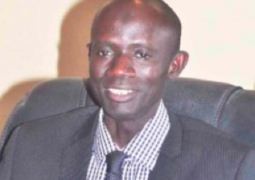The launching was witnessed by senior education officials, experts and regional education directors, and was held at the Region One Education directorate in Kanifing.
The World Bank funded project aims to support The Gambia to promote regional specialists among participating universities in areas that address regional challenges, and to strengthen the capacities of the Universities of The Gambia and beneficiary institutions to deliver quality training and applied research.
Speaking at the launching ceremony, the Vice Chancellor of the UTG and vice chairman of the national committee on STI, Prof. Muhammad O. Kah, said the launching of the ACE project during the joint session meetings gave them the opportunity to deliberate on critical issues aimed at addressing challenges, as well as to strengthen the capacities of key stakeholders and actors in the education sector from early childhood to university education, including teacher training.
Prof Kah expressed appreciation for “this laudable initiative,” adding that they “are working hard to ensure that in the not too distant future our university will be upgraded to become an African Centre of Excellence (ACE) site.”
He congratulated the leadership of MoBSE and MoHERST, especially in the areas of the sciences and mathematics, for their work to build a stronger Science, Technology, Engineering and Mathematics (STEM) infrastructure in The Gambia.
“STEM is critical to our country’s future, sustainability and security,” said Prof. Kah.
Professionals in the STEM area drive the economy in many important ways, from taking care of our environment and managing climate change, to ensuring the health and well-being of our nation, food security, building and maintaining infrastructure, defending against cyber security threats, and making businesses and government more sustainable, effective and efficient, he said.
It was important to note that STEM jobs generally offer high wages and exceptional job security, and grow entrepreneurship and industries employing many, he added.
“We all continue to consume Western and Asian countries’ scientific products, services and engineered products simply because they possess the necessary scientific and technological capabilities,” Prof. Kah stated.
These countries were poor for many centuries and some started poorer compared to many African countries before the acquisition and development of scientific capabilities and capacities, he noted.
However, these countries developed rapidly as their STEM infrastructure matured.
“We must acquire scientific and technological capabilities to solve unemployment, poverty and infrastructural problems, ineffcienciencies and systemic dysfunction across our institutions,” he observed.


